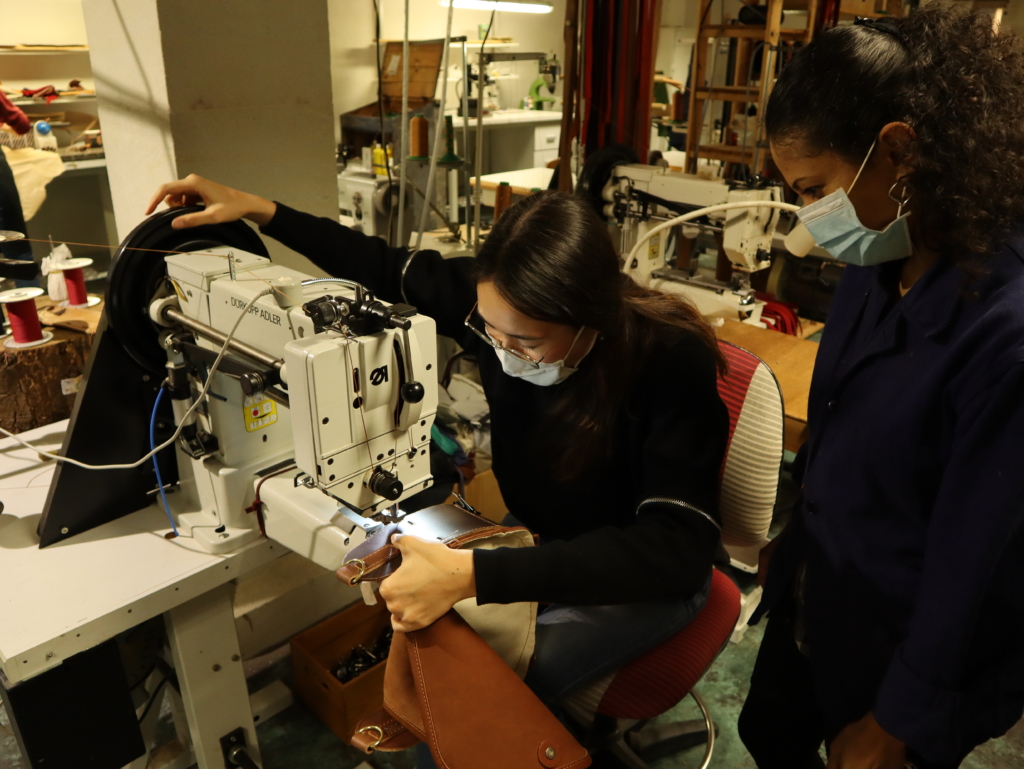The transmission of know-how is the set of training and apprenticeship actions implemented in a company to preserve the techniques developed in a trade or to prevent the loss of knowledge.
Entreprises du Patrimoine Vivant (EPV) are known and recognized for their excellent craftsmanship. For the Le Sac du Berger workshop (EPV since 2008), passing on know-how is essential to ensure the structure's long-term future. This is a key challenge, as the specific skills required for these long-established crafts are rarely offered through training courses.
As a rule, we are contacted by candidates from training schools. After assessing their needs, we plan their integration. To this end, they are assigned a tutor according to their target profession. The tutor will accompany, help and train them throughout their immersion. The type of apprenticeship support we most often provide is modelled on compagnonnage, which attracts young people looking for a philosophy of training and working life based on quality, solidarity and local culture.
Beyond the gesture, the craftsman transmits the values of the trade, what makes sense in the realization of the object, creativity, patience, sensitivity to materials. We give apprentices the opportunity to get hands-on experience. This means that instead of simply observing, they actively participate in the making.

For students, apprenticeships and internships facilitate integration and professionalization. Immersion in a company enables students to put their theoretical knowledge into practice and develop their professional network.
From the trainers' point of view, passing on means, above all, exchanging and therefore learning, enriching oneself with the knowledge and know-how of others. This makes it easier to question one's own abilities and encourages people to take regular stock of their own skills, careers, choices and projects. As a result, our craftsmen are very happy and proud to train many apprentices and trainees within our company.
At Le Sac du Berger, sharing know-how is important because we believe and trust in future generations to ensure the continuity of our work.

We currently welcome three apprentices and three trainees in various fields, including leather goods, bootmaking and communications. The duration of their stay varies from 15 days to 2 months for the trainees, and an academic year for the apprentices.

Photo: Véronique, our leatherworker, with Rinko, our apprentice, sewing a shepherd's bag.